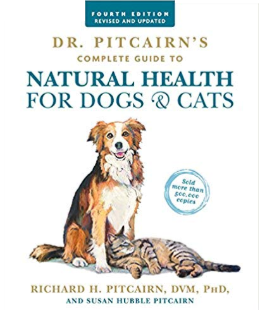-
Your cart is currently empty.
Welcome To our shop !

Whether it's in cats or in humans, aging significantly increases the chances of suffering disease. Today, cats are living longer and more fruitful lives, mainly thanks to massive improvements in nutrition, veterinary, and home care. Still, once your cat is nearing old age, there are several health complications that you should be aware of. Knowing which are the signs and symptoms of common feline diseases will allow you to take your cat to your veterinarian at the right time, therefore treating its health issues before they develop further. Here are 7 common senior cat diseases to keep an eye on: 1. Chronic Kidney Disease Chronic kidney disease is a common illness that affects domestic cats, but it is especially common in older cats and certain breeds. Kidneys play a vital role in your cat's body, as they are tasked with filtering and removing many of the waste produced by your pet's body, which is then expelled through the urine. Once the kidneys have started to fail there is no way to eliminate this waste, so it will start to build in your cat's bloodstream, a process called Azotemia, and cause damage to many organs.
 Although there is no definitive cure for chronic kidney disease, a timely diagnosis and treatment can help your cat live longer and feel more comfortable. Common symptoms of this disease include increased thirst, a spike in urine volumes, weight loss, diminishing appetite, and frequent vomiting. Certain supplements containing spirulina have been shown to be beneficial for maintaining healthy kidneys, but itsuse should be supervised by a veterinarian if your cat already has kidney disease. 2. Heart Disease Heart conditions are a common occurrence among senior cats. Although there are many types of heart disease, the most common one is Cardiomyopathy which weakens the heart's muscles and stops them from performing properly. As the disease progresses, it may lead to heart failure or other complications. Other forms of heart disease include Degenerative Valvular Disease, which causes the heart to grow and eventually fail, along with other conditions that can affect the cat's heart as well. Regardless of its origin, the end result of heart disease is Congestive Heart Failure, which means that the heart can no longer pump blood efficiently. 3. Diabetes Mellitus As in humans, feline Diabetes is a condition that creates high sugar levels in the blood over prolonged periods of time. Cats suffering from obesity due to incorrect diet, or leading a sedentary lifestyle have a higher risk of developing this disease. If diagnosed with this condition, your cat will require frequent insulin injections for the rest of his life. However, remission of the disease is possible if it's diagnosed in its early stages. Certain supplements have been shown to be beneficial for diabetic patients. Remission of Diabetes focuses on treating the disease before the pancreas has burned itself out trying to keep up producing enough insulin to regulate the abnormal glucose levels. Common symptoms of Diabetes in cats include drinking lots of water, an increase in the frequency of urination, increased appetite, and weight loss. Recurrent Urinary Tract Infections are a common side effect of diabetic pets and can be prevented with a clinically proven supplement like Cranimals Original. 4. Arthritis Arthritis is a degenerative joint condition that affects both middle-aged and older cats. Unfortunately, despite the disease being so common, it's usual for owners to confuse its symptoms with the normal changes brought by aging. Cats who have arthritis are more likely to become sedentary, stop trying to access elevated surfaces any longer, and sleep longer hours. They can also show signs of swelling in the joints, lameness, increase stiffness and decreased flexibility, and feel uncomfortable in certain positions. Arthritis can significantly diminish your cat's quality of life if it's left untreated. However, with adequate pain-relief treatment, your cat can go back to enjoy a more comfortable life. Supplements that contain natural anti-inflammatory and antioxidant phytonutrients and Omega 3 fatty acids may be beneficial in preventing and alleviating arthritis. 5. Hyperthyroidism Hyperthyroidism is a glandular condition caused by an excessive increase in production of thyroid hormone in the thyroid gland. Cats who suffer this disease display a seemingly contradictory tendency to lose weight despite having a big increase in their appetite. Besides these symptoms, other common signs of hyperthyroidism include vomiting, frequent diarrhea, increased thirst, and urination. Many of these symptoms are shared by some other more serious diseases, such as diabetes or chronic kidney disease, which is why an early diagnosis is necessary to start treatment as soon as possible.
Although there is no definitive cure for chronic kidney disease, a timely diagnosis and treatment can help your cat live longer and feel more comfortable. Common symptoms of this disease include increased thirst, a spike in urine volumes, weight loss, diminishing appetite, and frequent vomiting. Certain supplements containing spirulina have been shown to be beneficial for maintaining healthy kidneys, but itsuse should be supervised by a veterinarian if your cat already has kidney disease. 2. Heart Disease Heart conditions are a common occurrence among senior cats. Although there are many types of heart disease, the most common one is Cardiomyopathy which weakens the heart's muscles and stops them from performing properly. As the disease progresses, it may lead to heart failure or other complications. Other forms of heart disease include Degenerative Valvular Disease, which causes the heart to grow and eventually fail, along with other conditions that can affect the cat's heart as well. Regardless of its origin, the end result of heart disease is Congestive Heart Failure, which means that the heart can no longer pump blood efficiently. 3. Diabetes Mellitus As in humans, feline Diabetes is a condition that creates high sugar levels in the blood over prolonged periods of time. Cats suffering from obesity due to incorrect diet, or leading a sedentary lifestyle have a higher risk of developing this disease. If diagnosed with this condition, your cat will require frequent insulin injections for the rest of his life. However, remission of the disease is possible if it's diagnosed in its early stages. Certain supplements have been shown to be beneficial for diabetic patients. Remission of Diabetes focuses on treating the disease before the pancreas has burned itself out trying to keep up producing enough insulin to regulate the abnormal glucose levels. Common symptoms of Diabetes in cats include drinking lots of water, an increase in the frequency of urination, increased appetite, and weight loss. Recurrent Urinary Tract Infections are a common side effect of diabetic pets and can be prevented with a clinically proven supplement like Cranimals Original. 4. Arthritis Arthritis is a degenerative joint condition that affects both middle-aged and older cats. Unfortunately, despite the disease being so common, it's usual for owners to confuse its symptoms with the normal changes brought by aging. Cats who have arthritis are more likely to become sedentary, stop trying to access elevated surfaces any longer, and sleep longer hours. They can also show signs of swelling in the joints, lameness, increase stiffness and decreased flexibility, and feel uncomfortable in certain positions. Arthritis can significantly diminish your cat's quality of life if it's left untreated. However, with adequate pain-relief treatment, your cat can go back to enjoy a more comfortable life. Supplements that contain natural anti-inflammatory and antioxidant phytonutrients and Omega 3 fatty acids may be beneficial in preventing and alleviating arthritis. 5. Hyperthyroidism Hyperthyroidism is a glandular condition caused by an excessive increase in production of thyroid hormone in the thyroid gland. Cats who suffer this disease display a seemingly contradictory tendency to lose weight despite having a big increase in their appetite. Besides these symptoms, other common signs of hyperthyroidism include vomiting, frequent diarrhea, increased thirst, and urination. Many of these symptoms are shared by some other more serious diseases, such as diabetes or chronic kidney disease, which is why an early diagnosis is necessary to start treatment as soon as possible.

6. Dental disease Dental problems are a common occurrence in cats of all ages. It is estimated that as many as 2/3 of cats over the age of 3 suffer from dental disease. This painful condition is commonly caused by the accumulation of plaque and tartar formation in the cat's teeth as a result of years of poor (if any) dental care. The disease affects both the teeth and the gums around it, inflicting pain on the animal, diminishing its appetite, and causing weight loss. Powdered cranberry supplements when added to a cats daily meals, will help prevent the build-up of tartar and plaque on teeth and resulting dental disease. 7. Cancer As with humans, cancer is a disease that becomes more prevalent as your cat ages. Many types of cancer affect cats, such as the highly common Lymphosarcoma, but not all of them have to be fatal. Many types of cancer can be treated successfully if they are detected at their early stages. A variety of strategies are available to help prevent your cat from getting cancer, including antioxidant and anti-carcinogenic berry supplements, dietary changes (i.e. reducing or eliminating kibble and switching to a whole food, home made diet). Treatment options range from natural therapies such as novel food supplements, specific dietary changes, surgery, chemotherapy, and X ray therapy and depending on your choice, can significantly extend your pet's life. However, symptoms depend on the type of cancer involved, so regular checkups are the best way to track your cats cancer risk as they age.
 AN EARLY DIAGNOSIS IS CRUCIAL FOR YOUR CAT'S HEALTH The older a cat gets, the more likely it is that it will suffer more than one of these diseases. That's why taking care of an older cat is especially challenging. Fortunately, veterinary science has come a long way in the past decades, and many of these conditions can be mitigated with an early diagnosis and proper treatment. As well, and perhaps even more importantly, if pet parents take the time to educate themselves regarding the proper diet and supplements for their cats, then the risk of cancer can almost be entirely eliminated. We recommend feeding food that contains as much fresh unprocessed ingredients as possible (fresh/ canned fish, sea greens (spirulina, algae), fish or algae oil (DHA Omega 3), and avoids as far as possible a heavy reliance or eliminated completely a kibble based diet. Kibble diets contain highly processed ingredients, of questionable origin, and frequently contain contaminants such as heavy metals, pesticides and Genetically Modified Ingredients (GMOs). Your cat should be examined by a veterinarian at least twice a year. Regular veterinary care and preventative health care at home, can save your pet's life and provide him the comfort he deserves during his last years. Keep in mind that the sooner a disease is diagnosed and treated the better. So make sure that you keep your eyes open for any odd behavior or symptom exhibited by your cat, such as increased or diminished appetite, diarrhea, weight loss, etc. However, you should never assume that as the cat's owner you'll always be able to tell if there's something wrong with your pet. Cats are famous for their ability to mask their sickness, so you will need an expert to know if your cat has a problem. That's why your regular visits to the veterinarian should include at a minimum a complete physical examination which will reveal the true state of your beloved mascot's health. Any easy way to check your cat at home for some of the most common health issues is to regularly do a urine test at home using the same type of diabetes and kidney failure or urinary tract infection tests as your veterinarian uses in his office.
AN EARLY DIAGNOSIS IS CRUCIAL FOR YOUR CAT'S HEALTH The older a cat gets, the more likely it is that it will suffer more than one of these diseases. That's why taking care of an older cat is especially challenging. Fortunately, veterinary science has come a long way in the past decades, and many of these conditions can be mitigated with an early diagnosis and proper treatment. As well, and perhaps even more importantly, if pet parents take the time to educate themselves regarding the proper diet and supplements for their cats, then the risk of cancer can almost be entirely eliminated. We recommend feeding food that contains as much fresh unprocessed ingredients as possible (fresh/ canned fish, sea greens (spirulina, algae), fish or algae oil (DHA Omega 3), and avoids as far as possible a heavy reliance or eliminated completely a kibble based diet. Kibble diets contain highly processed ingredients, of questionable origin, and frequently contain contaminants such as heavy metals, pesticides and Genetically Modified Ingredients (GMOs). Your cat should be examined by a veterinarian at least twice a year. Regular veterinary care and preventative health care at home, can save your pet's life and provide him the comfort he deserves during his last years. Keep in mind that the sooner a disease is diagnosed and treated the better. So make sure that you keep your eyes open for any odd behavior or symptom exhibited by your cat, such as increased or diminished appetite, diarrhea, weight loss, etc. However, you should never assume that as the cat's owner you'll always be able to tell if there's something wrong with your pet. Cats are famous for their ability to mask their sickness, so you will need an expert to know if your cat has a problem. That's why your regular visits to the veterinarian should include at a minimum a complete physical examination which will reveal the true state of your beloved mascot's health. Any easy way to check your cat at home for some of the most common health issues is to regularly do a urine test at home using the same type of diabetes and kidney failure or urinary tract infection tests as your veterinarian uses in his office.
Be the First to Know. Sign up for newsletter today







Recent Comments